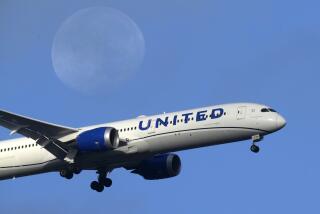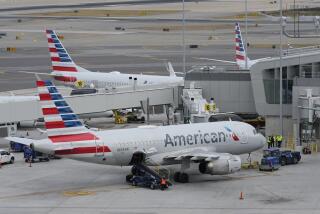Redeem air miles now to avoid devaluation losses

Question: I flew with Delta from L.A. to India twice just for the mileage. When I earned enough to go to the country I wanted to visit, they told me that they are sorry, but they doubled the mileage required for the particular flight. I was so angry and stopped flying with Delta. What’s a person to do in a situation like this?
Edith Gelbard
Los Angeles
Answer: Scream and then go on. You’re in good company among those of us who are now looking at awards miles and saying “arrgh.”
If you’re a holder of Delta, Southwest or United miles, you’ll be in the same boat as Gelbard. Delta has announced a couple of devaluations — an interim step earlier this month and another set for June 1, said Brian Kelly, a.k.a. the Points Guy, whose website chronicles the trials, tribulations and occasional triumphs of playing the loyalty program mileage game. Southwest increases the number of miles you need for an awards ticket at the end of March, Kelly said, and United devalued its miles earlier this month.
The new devaluation of points and the difficulty of booking a ticket you really want (Hawaii and Europe come to mind) stem from the same old problem: too many miles, too few seats. The airline industry recorded load factors (seats occupied) for domestic and international flights of 82.7% through the first 11 months of 2013, the most recent stats available from the Bureau of Transportation Statistics. It is not coincidental that you rarely find an empty middle seat, nor are you imagining your difficulty in booking an awards ticket through some airlines.
For holders of miles, the devaluation — and experts say it’s just a matter of time before the new American/US Airways mega-line joins the trend — coupled with high load factors mean you should stop holding those miles for a rainy day.
“Definitely don’t hoard,” said Anisha Sekar, vice president of credit and debit for NerdWallet.com, a personal finance website. There were devaluations in some awards programs in 2013 as well, and “there’s little reason to think that is going to change,” she said.
But booking speculatively to hedge against devaluation, except perhaps on Southwest, isn’t a good idea, Kelly said, because you’ll incur a change fee (Southwest doesn’t charge a change fee). The best of all possible worlds: Choose a vacation date and try to book now.
If you find yourself short of miles, there are easier ways to earn them than flying to India. Many airline-branded credit cards offer mileage sign-up bonuses if you spend a certain amount. A recent American Airlines promo for its World Elite MasterCard offers 100,000 miles; you must spend $10,000 within three months and pay a $450 annual fee. Other cards require more modest spends — $2,000 say — in three months, and they waive the annual fee.
Don’t these cards just add to the problem of mile bloat that could fall victim to devaluation?
They do, said Odysseas Papadimitriou, chief executive of CardHub.com and WalletHub.com, personal financial websites, so you should get the cards “only if you are going to be able to redeem those miles in less than a year,” he said.
He’s not a fan of hoarding either — “you are exposing yourself to a lot of devaluation risk” — but he is a fan of cash-back cards.
Kelly noted, though, that cash-back cards can’t get you the upgrades to business or first class that make mileage programs so alluring.
There’s no disagreement among these three experts on this: Use your points now.
It’s often said that you shouldn’t waste those miles to go someplace that you could buy a ticket to fairly cheaply. I disagree. If your loyalty program puts a trip to, say, Washington, D.C., within reach, why not? In financial terms, that may not be the best value for hard-earned loyalty. But there’s also no way to measure the pleasure of a destination you might not see otherwise. If awards points are no longer like money in the bank, at least a ticket to a non-exotic destination isn’t money out of our pocket.
Have a travel dilemma? Write to travel@latimes.com. We regret we cannot answer every inquiry.
More to Read
Sign up for The Wild
We’ll help you find the best places to hike, bike and run, as well as the perfect silent spots for meditation and yoga.
You may occasionally receive promotional content from the Los Angeles Times.







